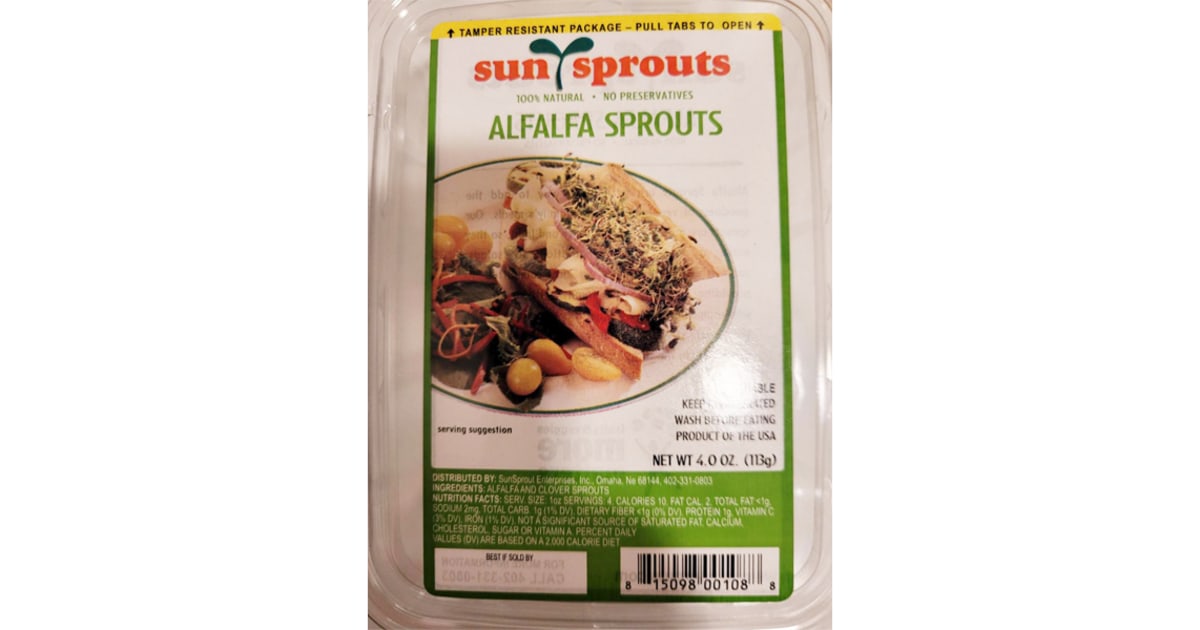A Nebraska company is recalling alfalfa sprouts sold in three states due to possible salmonella contamination as state health officials investigate a «group of gastrointestinal illnesses» caused by the bacteria.
SunSprout Enterprises, headquartered in Fremont, Nebraska, announced on thursday that it is voluntarily recalling four lots of raw alfalfa sprouts.
The company said it distributed 1,406 pounds of product to five grocery and foodservice customers in Nebraska, Kansas and Iowa from late November to mid-December. The product was sold in 4-ounce clamshells and 2.5-pound packages with best-sold purchase dates between December 10, 2022 and January 7, 2023.
The recall is out of an «abundance of caution,» the company said.
As of Thursday, 16 people have reported becoming ill and all have reported consuming SunSprout brand alfalfa sprouts between December 4 and December 13, either at local restaurants or at home after purchasing at local grocery stores. , the Nebraska Department of Health and Human Services he said on Thursday.
Test results from eight of those individuals indicated salmonella infection, while seven others are awaiting confirmation, the department said of the investigation.
SunSprout said it has not received any complaints or reports of illnesses due to the recalled product.
«This voluntary recall is the result of a preliminary investigation by the State of Nebraska in connection with the CDC of a disease outbreak likely associated with alfalfa sprouts,» the company said.
SunSprout said it is investigating further how the sprouts were «handled and stored after leaving their Nebraska facility.»
Salmonella infection is a common bacterial disease that affects the intestinal tract. The organism can cause serious and sometimes fatal infections in young children, the elderly, or people with weakened immune systems. Healthy infected people typically experience fever, diarrhea, nausea and vomiting, according to the US Food and Drug Administration.
Most people with salmonella infection recover in four to seven days without antibiotics, the Nebraska Department of Health said.
State epidemiologist Dr. Matthew Donahue praised state and local health officials for quickly narrowing down the cause of the illnesses.
«From the first people reporting the disease to state and local health departments who investigated further, to rapid sequencing done at the Nebraska Public Health Laboratory, and national help from CDC and FDA, the collaboration state and national allowed us to narrow down on the suspect product as quickly as we did. This is a great example of public health at work,» he said.
The investigation is ongoing.

